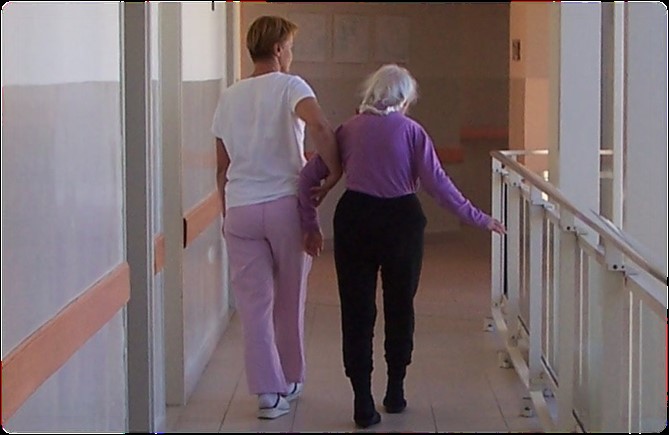For many young people it can take several years to find employment, even in the understaffed sectors, indicating that the current employment measures require reform.
Understaffing is a long-standing problem in the health care and the social welfare sectors. It is an issue that can impact the quality of their services and, consequently, the level of the exercise of the citizens’ human rights. This has been reflected both in the complaints related to health care we received in 2020 and 2021 citing difficulties in accessing specialist care or accessing health care services in the rural areas and on the islands, as well as in the fact that the social welfare sector has experienced several tragic events in the same period, such as the recent death of a two year old girl in a domestic violence case and the deaths of a number of residents of the homes for the elderly in accidents involving fire.
It can also be inferred from the Health minister’s call issued during the COVID-19 pandemic urging retired physicians to return to work, as well as from the fact that, according to the data by the Ministry of Labor, Pension System, Family and Social Policy, the social welfare sector currently lacks 629 employees. The latter has prompted the authorities to include the plans for the employment of 200 new experts within the social welfare sector in the future period as part of their recently adopted Social Welfare System Reform Plan.
It is hard to believe then that many young experts in these sectors, as well as those in the area of education, have to wait several years to receive an internship position, which is a requirement for undertaking the state qualifying exam and further employment.
Internships Hard to Come By
The complaints we receive reflect the above mentioned problems as well as their impact on the country’s demographic trends. One of the complainants argues that a number of young social workers moved to Germany long ago because “it’s easier to translate your diploma and learn another language that it is to wait for years and not know whether you will ever get a chance for employment in Croatia.” The complaint submitted to us by a young anonymous complainant in the name of several hundred young people of various professions states: “While we wait for the positions in our profession to open, we are supposed to refrain from getting employed anywhere else because it is one of the conditions to even apply for those positions. So, while we are waiting, we depend on the help from our parents and family members and cannot make any income ourselves so that we could support ourselves independently. We want to work, but we can’t.” This can lead to a situation where some young people can afford to wait for an open position in their field, whereas other cannot and are forced to get employed somewhere else in order to be able to cover their basic living expenses. In other words, it can lead to discrimination based on one’s economic status.
Difficulties in accessing internship positions stem from several reasons:
- Extremely formalized employment procedures in the health care, social welfare and education sectors, based on the previously established employment quotas and the prior approval of the competent ministries and the Ministry of Finance.
- A suspension of the implementation of employment measures including internships, during the COVID-19 pandemic. Due to the pandemic and its impact on the economy and the labor market, employment measures were replaced by those aimed at keeping the existing workforce in employment. As a consequence, the number of young people included in the employment measures in 2020 was lower by 38,17% compared to the year before.
- Internship quotas are not harmonized with the number of students who finish their education for one of these professions each year, and who need to complete the internships to be able to pass the state exam before entering the labor market.
- To be able to receive an internship in the private sector through the state’s employment measures, the individual needs to previously be unemployed for at least six months. This means that young people are forced to chose between employment in their profession or somewhere else in case they cannot afford to remain unemployed for such a long period of time.
Recommendations for Easier Youth Employment
Acting on the young people’s complaints submitted to the Ombudswoman, we issued several recommendations to the Ministry of Labor, Pension System, Family and Social Welfare and the Croatian Employment Service and notified the Ministry of Science and Education, Ministry of Health, Ministry of Justice and Public Administration, Central State Office for Demography and Youth and the Croatian Youth Network – a non-governmental organization working with the youth. The aim was to facilitate the employment of young people in the health, social welfare and education sectors and to strengthen those sectors at the same time, given the fact that for years now they have been burdened by underemployment and the lack of staff.
More specifically, we recommended:
- that all of the effects of the employment measures on the young people be analyzed, both the positive as well as the negative ones,
- that the employment measures targeting young people be redefined and either readjusted or replaced with the more efficient ones,
- that the competent institutions in the various sectors step up their cooperation and that all of the institutions we issued our suggestions to, as well as educational institutions and the interested public, be included in the process of developing efficient youth employment measures.
In our recommendations we especially stressed the need to include the NGOs working with the young people in the above mentioned processes, since in their complaints submitted to us they already often include their suggestions for the improvement of the youth employment measures. It is also important to include the Central State Office for Demography and Youth, since its tasks include motivating young people to stay in the country and harmonizing the work of state and other bodies and institutions aimed at improving the life quality of the youth and establishing a comprehensive and intersectional youth policy.
 Ombudswoman Submits Report 2023 Annual Report to the Croatian Parliament
Ombudswoman Submits Report 2023 Annual Report to the Croatian Parliament The Importance and Impact of Political Discourse in the Pre-Election Period
The Importance and Impact of Political Discourse in the Pre-Election Period International Conference Marks End of the Project on the EU Charter on Fundamental Rights and the Rule of Law
International Conference Marks End of the Project on the EU Charter on Fundamental Rights and the Rule of Law Parliamentary Committee on Human and National Minority Rights Votes in Favor of the Ombudswoman’s 2022 Annual Report
Parliamentary Committee on Human and National Minority Rights Votes in Favor of the Ombudswoman’s 2022 Annual Report World Homeless Day – Invisible, but also Forgotten?
World Homeless Day – Invisible, but also Forgotten? Ombudswoman to Issue Special Report on the Human Rights of Older Persons
Ombudswoman to Issue Special Report on the Human Rights of Older Persons


